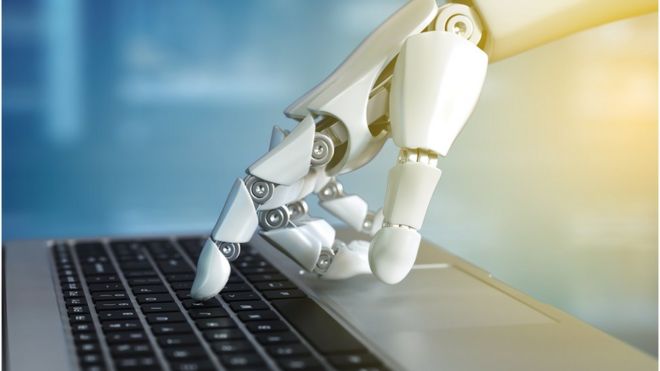
These days, the advance of technology is remarkable. Technology shows a strong presence in society, including the hospitality industry.
For instance, Henn na Hotel, located in Nagasaki, Japan, hired 243 AI robots as their employees since they opened the business in 2015. Even though the hotel has already fired half of the robots because those robots had caused more problems, the hotel drew so much attention from those who love traveling and proved that the demand for AI in the hospitality industry is significantly high. If AI became able to deliver high-quality service as humans do, they would definitely show a stronger presence in our society in the future.
Analysis of how COVID-19 will affect AI demand
Currently, with COVID-19 affecting the whole world, many people have no choice but to work remotely at home. In addition, many companies, which were not able to make their employees work at home and keep their businesses, had already laid off them. The number of people who lost jobs during a one-week span ended on March 21st recorded 3.3 million. By comparison, no more than 700,000 people had lost jobs in a week before COVID-19 becomes such a big issue in the United States. It is said that the current unemployment rate is worse than the time of The Great Recession.
In such a harsh situation, AI is drawing people’s attention as a good resource for labor. Think about it, do AI robots get affected by COVID-19 or any other kind of scary viruses? The answer is no, they do not get contaminated by viruses simply because they are not living things. Thus, they can work as usual even in this challenging time. Another advantage of AI is that AI-to-human contact has less possibility to carry viruses than human-to-human contact.
Although there are many obstacles when it comes to hiring AI as employees like Henn na Hotel had experienced, there are many more advantages to hire them, especially during the COVID-19 period. The unnormal situation that we are facing now increases the demand for AI.
The benefit of introducing AI into the hospitality industry
Among those who lost their jobs, many came from the hospitality industry. Since especially restaurants and hotels are experiencing serious negative impacts due to COVID-19, business owners had to fire their employees.
What if they had AI robots for their employees during this challenging time, however? I strongly believe that if those owners had done so, they could have lessened their losses.
For example, assume that there is a restaurant that hires humans in the kitchen and robots as servers. During this challenging time, the restaurant owner can stop the operation of those robots while he/she can make chefs work as usual. Then, if the restaurant focuses on only delivery and takeout service, COVID-19 would have much less impact on the business’ bottom line since the owner pays nothing for not-operating robots.
In addition, what if there is a type of robot that can deliver meals to customers? Many people would prefer that service because there is less risky to get exposed to viruses as human contact has been minimized. Then, more people would order food delivery. Restaurants can maintain their revenues as usual or even have a boost.
The future of AI in the hospitality industry
In reality, the biggest obstacle to hire AI is the lack of technology. We are still not able to develop such high-quality AI robots that can satisfy customers’ needs and wants as humans currently provide. However, the demand for AI will increase more and more in the future, the demand keeps growing even right now. The COVID-19 has changed the world, and we are no longer able to go back to the world before COVID-19. From now on, we must get along with COVID-19 and adjust our lifestyles. Thus, people would change how they travel, work, shop, and hang out in the coming years. We, as future contributors to the hospitality industry, must pay attention to how people would shift their preference from human service to AI service.
Do you think the demand for AI will increase more and more in the future? How do you expect about what percentage of jobs in restaurants can be performed by AI in 10 years?
About the author
Kazuho Kawanishi was born in Japan and came to the United States right after he graduated from high school in Japan. Currently, he is a junior student at Collins College of Hospitality Management with the hotel and lodging emphasis. He used to be a Glendale Community College student with a hospitality major where he realized how exciting the hospitality industry is. He hopes he can get a hotel-related job using the opportunity of OPT after graduation from Collins College and broaden his knowledge of hospitality management. His very future goal is to open a hotel which targets foreigners who visit Japan and entertain them as much as possible.
Picture Source: https://www.bbc.com/news/technology-52340651
Comments
Post a Comment